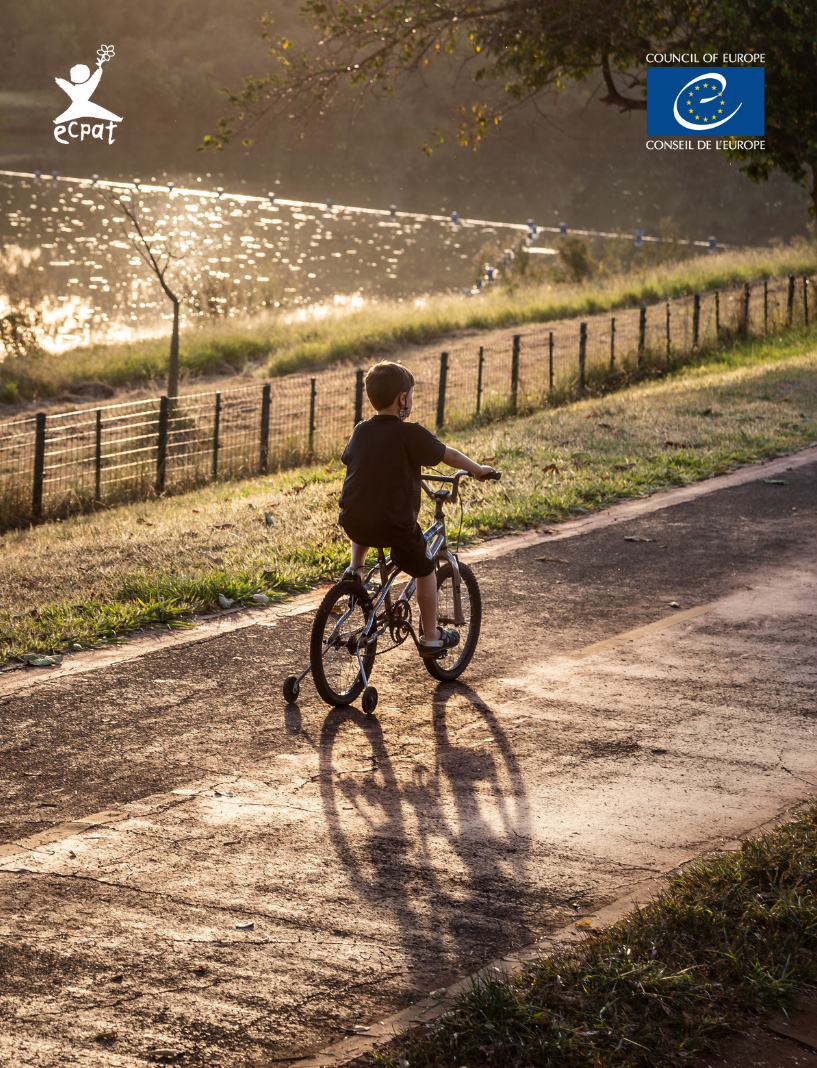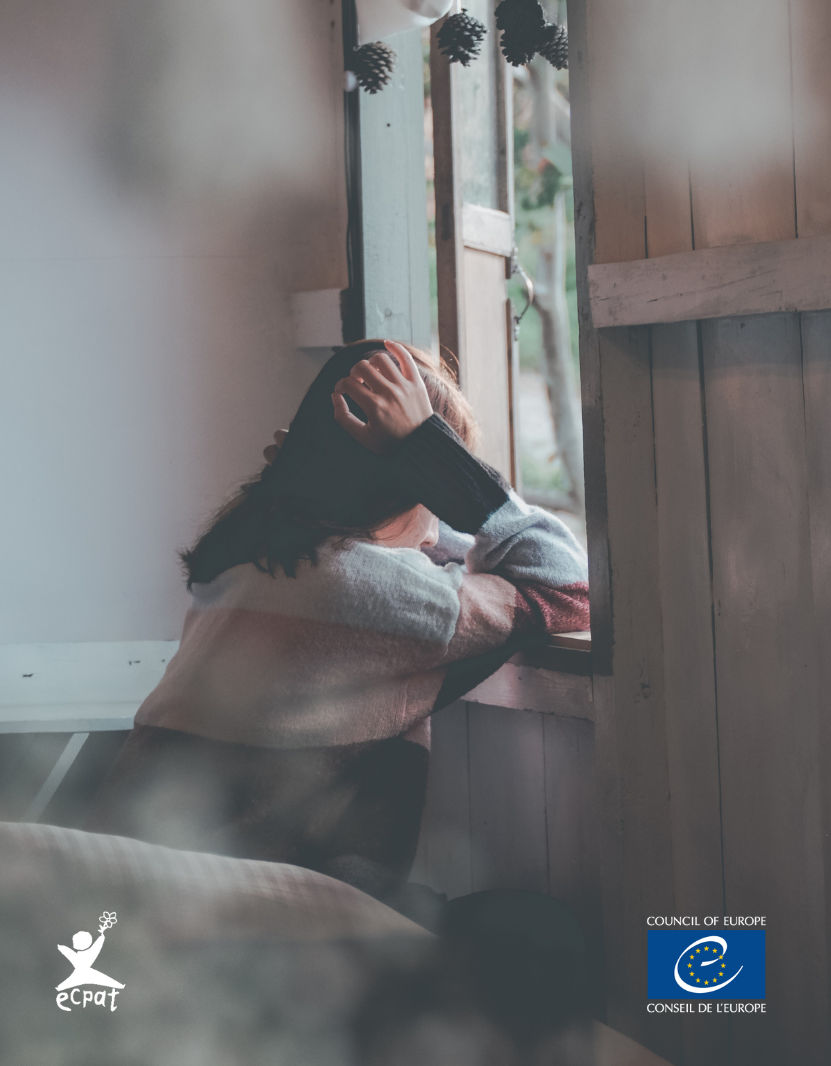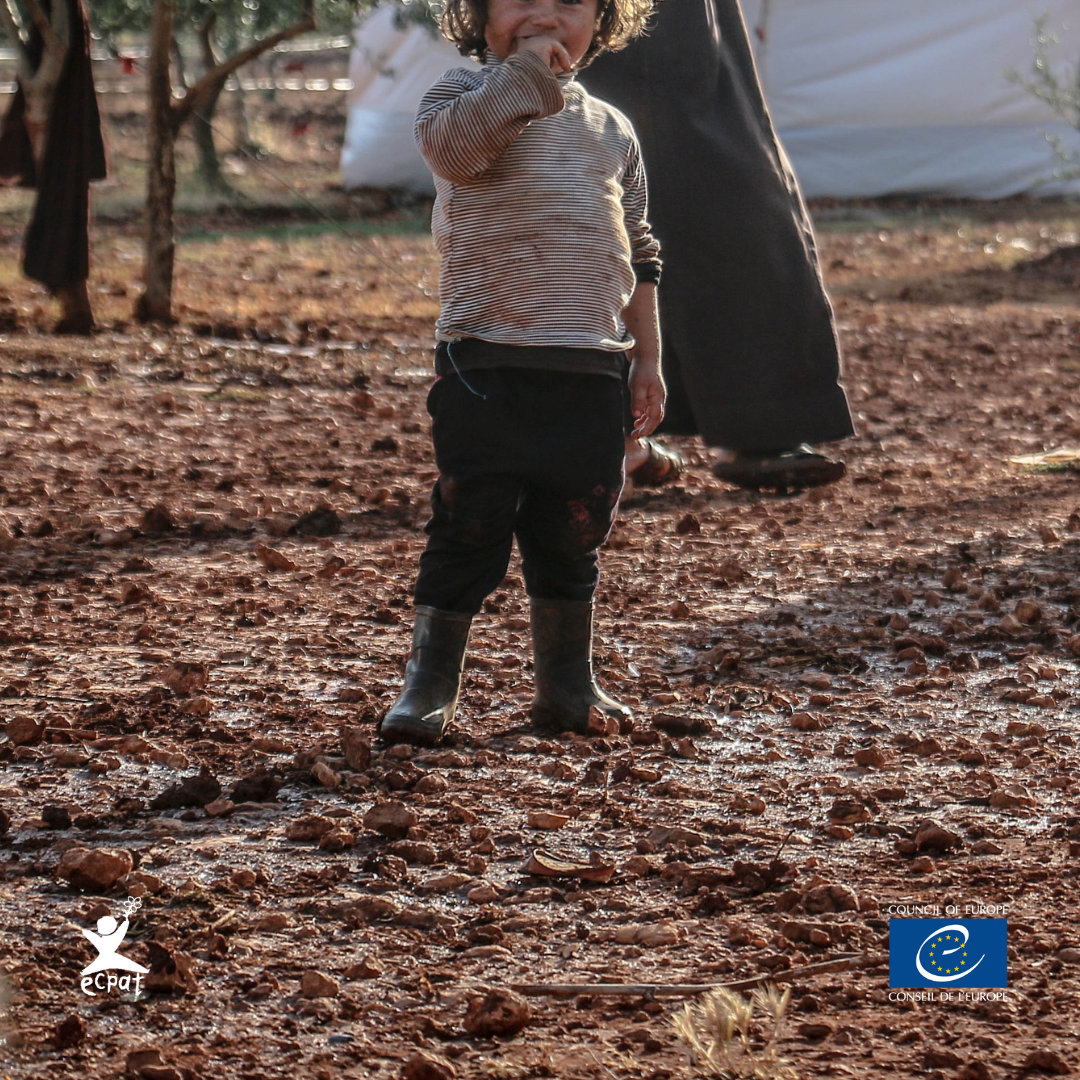This article is a summary of a joint report between the Council of Europe and ECPAT International Secretariat. The Country Overviews were prepared in close collaboration with the national authorities represented in the Committee of Parties to the Council of Europe Convention on the Protection of Children against Sexual Exploitation and Sexual Abuse (the Lanzarote Committee).
The Country Overview on the Republic of Moldova is the second one to be prepared and presented. These joint Country Overviews bring together the information submitted by Parties to the Lanzarote Convention through the General Overview Questionnaire, the recommendations adopted by the Lanzarote Committee in its monitoring rounds, and additional desk-based research aimed to bring the information up to date. This report aims to provide an effective tool for advocacy, awareness raising and thus advancing the fight against child sexual exploitation and sexual abuse in countries.

What is Child Sexual Abuse and Exploitation?
Article 18 of the Lanzarote Convention defines sexual abuse as
a) the engagement in sexual activities with a child who, according to the relevant provisions of national law, has not reached the legal age for sexual activities; and
b) engaging in sexual activities with a child where: – use is made of coercion, force or threats; or – abuse is made of a recognised position of trust, authority or influence over the child, including within the family; or – abuse is made of a particularly vulnerable situation of the child, notably because of a mental or physical disability or a situation of dependence.
The Republic of Moldova is an upper middle-income economy which, according to the latest available statistics from the World Bank, has a population of 2.64 million in 2021. Fifty-seven per cent of the population living in rural areas.
Despite progress made in recent years to reduce poverty, the Republic of Moldova remains one of the poorest countries of Europe. According to the latest statistics of the National Bureau of Statistics of the Republic of Moldova, in 2021, 24.4% of children were living in absolute poverty. The worsening socio-economic context and the high migration rates in the Republic of Moldova are increasing the number of children at risk, in particular of being possibly subjected to violence, neglect, and of being involved in vagrancy, begging and prostitution.
“Poverty, in general, can be a significant determinant in not only perpetuating sexual exploitation of children but also in reinforcing its demand for the sexual exploitation of children.”

Child sexual abuse is broadly criminalised in the Moldovan legislation but remains a problem. According to the data provided by the Republic of Moldova, between 2018-2021, law enforcement documented 1,316 crimes of child sexual abuse. In 36% of these cases, the children were 0-13 years old and in 77% of the cases the child was female.
There are no official statistics or estimates on the number of children exploited in prostitution in the Republic of Moldova. The only available data are those related to criminal complaints and convictions for related offences. Despite the lack of quantitative information, there is enough evidence to indicate that this form of sexual exploitation affects a consistent number of Moldovan children and is very often linked to child trafficking. Additionally, a 2018 qualitative study by Terre des Hommes found that children with more than six months experience in street situations in the Republic of Moldova, especially boys aged 11-16, were exposed to high risks of sexual exploitation, and were often faced with limited options thus, forced to engage in survival sex for food and shelter.
According to the data provided by the Republic of Moldova, between 2018-2021, there were a total of 214 child victims of trafficking (60 in 2018, 109 in 2019, 23 in 2020 and 22 in 2021). However, anecdotal evidence from civil society organisations indicates that the number could be much higher. The Republic of Moldova is a country of origin of victims of human trafficking. The primary countries of destination are the Russian Federation, followed by European Union countries (namely the Slovak Republic, Spain, Ireland and Portugal) and Türkiye. However, the situation of sexual exploitation of children through trafficking may have changed since the start of the war in the neighbouring country of Ukraine. As a consequence of the war, the Republic of Moldova now is both a destination and transit country, thereby heightening the vulnerabilities and risks for Ukrainian children to sexual exploitation in and through trafficking while traveling to and/or staying in the Republic of Moldova.


As a result of the COVID-19 crisis severe lockdown measures and suspension of support services, there was an increase in children switching to online platforms for both communication and learning purposes. As of January 2022, there were 3.06 million Internet users in the Republic of Moldova and the Internet penetration rate stood at 76.1%. According to statistics provided by La Strada Moldova, in the first half of 2021, out of the 1,745 calls made to SigurOnline, the online platform launched by La Strada Moldova to provide counselling to children who experienced online sexual abuse, 89% (1,554) of the calls were from children. Most reports about online sexual abuse and exploitation referred to sexual extortion.
Statistics provided for the purpose of this report by the Republic of Moldova on the sexual abuse and exploitation of children show that, between 2018-2021, 23% of the total 1,316 victims were boys. This was reflected in the findings of the 2019 nationally representative household survey, conducted by the International Organisation for Migration, IMAS and the Centre for Disease Control and Prevention, which identified that over half of male adolescents aged 13-17 and young men aged 18-24 who had experienced sexual violence in childhood did not seek support services because they thought that what had happened to them was not a problem.


The severity and frequency of extreme hazards such as droughts, flooding, and wildfires are high and are predicted to increase, in the Republic of Moldova, which is already highly vulnerable to natural hazards. The country is facing increasing food security and poverty issues, with almost a third of the population already suffering from this food crisis in the beginning of 2022. Coupled with the mass displacement of people witnessed as a result of the conflict in Ukraine, the Republic of Moldova is hosting a massive influx of refugees entering, thereby worsening the already fragile situation. Among the total 100,366 Ukrainian refugees remaining in the Republic of Moldova as of 19 March 2023 (entering from all borders), of those below the age of 18, approximately 60% are male refugees and approximately 40% are female. Risk factors for trafficking and exploitation could include, but are not limited to, the large number of unregistered volunteers offering help and accommodation, as well as the determination of the refugees themselves to travel out of Ukraine as soon as possible.
In 2020, the Republic of Moldova introduced a new legislation to establish stricter sentences for offenders of trafficking and sexual exploitation, with harsher penalties for cases of aggravated circumstances, including when the victim is a child. In addition, in November 2022 a new law (hereinafter “law on the rights of victims”) was adopted by the Parliament, aiming to ensure the rights of victims of crimes related to sexual life and family violence as well as aiming to adjust the criminal legislation to internationally agreed standards such as those included in the Lanzarote Convention. Although this law extends protective measures foreseen for victims of domestic violence to victims of crimes of sexual nature, it also significantly reduces the penalties associated with some of sexual offences against children.
In May 2022, the Government of the Republic of Moldova approved the creation of the “Specialised Commission for the coordination and monitoring of the implementation of the Council of Europe Convention of the protection of children against sexual exploitation and sexual abuse” within the National Council for Human Rights. This includes representatives from relevant ministries in charge of the protection of children and the prevention of sexual exploitation and sexual abuse against children.
The Republic of Moldova has additionally benefited from cooperation programmes of the Council of Europe since 2006, with the current strategic programming instrument, including the Council of Europe Action Plan for the Republic of Moldova 2021-2024. The current Action Plan encompasses the protection of children against sexual exploitation and abuse, including in the digital environment, as a key area of cooperation.
According to the Moldovan Criminal Procedure Code, hearings of victims of sexual abuse or exploitation must follow a specific child-friendly procedure that includes the questioning by a trained interviewer in a special room equipped with audio/video recording facilities. In 2020, upon the examination of 205 court files, research by the Council of Europe found that the child-friendly procedure was used in only 60 cases, with significant delays in making a request to hear a child under the special procedure.
The Country Overview outlines key tracks that the Government of the Republic of Moldova could follow
to improve the protection of children from sexual exploitation and abuse, namely to:
About The Council of Europe
The Council of Europe is the continent’s leading human rights organisation. It has 46 member states, including all members of the European Union. All Council of Europe member states have signed up to the European Convention on Human Rights, a treaty designed to protect human rights, democracy and the rule of law. All member States have also ratified the Lanzarote Convention.